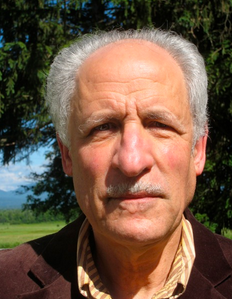It deserves to be remarked here, that those very persons in Great Britain who are in so mean a situation as to be excluded from a part in elections, are in more eligible circumstances than they would be in who have every necessary qualification.
They compose a part of that society to whose government they are subject. They are nourished and maintained by it, and partake in every other emolument for which they are qualified. They have, no doubt, most of them, relations and connections among those who are privileged to vote and by that means are not entirely without influence in the appointment of their rulers. They are not governed by laws made expressly and exclusively for them, but by the general laws of their country, equally obligatory on the legal electors and on the law-makers themselves. So that they have nearly the same security against oppression which the body of the people have.
To this we may add, that they are only under a conditional prohibition, which industry and good fortune may remove. They may, one day, accumulate a sufficient property to enable them to emerge out of their present state. Or, should they die in it, their situation is not entailed upon their posterity by a fixed and irremediable doom. They, agreeably to the ordinary vicissitudes of human affairs, may acquire what their parents were deficient in.
These considerations plainly show that the people in America, of all ranks and conditions, opulent as well as indigent (if subjected to the British Parliament), would be upon a less favorable footing than that part of the people of Great Britain who are in so mean a situation that they are supposed to have no will of their own. The injustice of this must be evident to every man of common-sense.
-----
Thomas Jefferson
Jefferson was Ambassador in Paris and unable to attend the Constitutional Convention but in regular communication with Madison, who was "a Jefferson man." Furthermore, Jefferson wrote the Declaration of Independence, which automatically became virtually a part of the Constitution: it was the parent-document. Jefferson ideologically stood at the extreme opposite end from Hamilton; Jefferson was an unalloyed democrat, a total opponent of aristocracy, and no admirer of the British or any existing system.
Jefferson wrote, on 12 November 1816, to his long-time friend Dr. George Logan of Philadelphia, about the "profligacy" of England's government, wasting resources to prop up its international corporations, which Jefferson said had brought about "the ruin of its people" in order to benefit those aristocrats. He said, "This ruin [in England] will fall heaviest, as it ought to fall, on that hereditary aristocracy which has for generations been preparing the catastrophe [meaning creating the catastrophe (by corrupting the government), not meaning to prepare for the catastrophe]. I hope we shall take warning from the [English] example [e.g., the British East India Company] and crush in it's [sic] birth the aristocracy of our monied corporations which dare already to challenge our government to a trial of strength and bid defiance to the laws of our country." (Regarding the British East India Company, the prominent recent history was that they had violently put down the 1806 Vellore Sepoy Revolution, after the locals there had attacked the Company's garrison at Vellore Fort and killed 14 officers and 100 soldiers. The Company then killed between 350 and 800 Indian Sepoys in retaliation. The chief point of Jefferson's letter was that "The man who is dishonest as a statesman would be a dishonest man in any station," so that "moral conduct towards other nations" inevitably reflects upon the character of the people who lead a given nation. Jefferson was implying that England's aristocracy were corrupt, and that England's government was subsidizing their brutal expansion of the Empire; England's citizens, and not only India's, were paying the price for the aristocracy's corruption, Jefferson said.)
Nor was this statement anomalous from Jefferson. On 16 January 1787, he wrote to Edward Carrington: "European governments ... have divided their nations into two classes, wolves and sheep. ... Man is the only animal which devours his own kind, for I can apply no milder term to the governments of Europe, and to the general prey of the rich on the poor."
Unlike most of the Founders, who were at least partially conflicted about whether they were totally democrats, or partly Tories, Jefferson was a totally committed democrat.
THE BOTTOM LINE IN ALL OF THIS:
The Founders couldn't agree on a solution, so they left the problem out of the Constitution. They didn't have any answer to it. However, all of them were terrified of corruption taking over the country. Their big failure was in even so much as entertaining the idea, fashionable from philosophers, that in order to block a plutocracy from taking over the country, they needed to be more concerned that the rich would buy votes of the poor and thus control the state via the votes of the poor so that the poor shouldn't even vote, than to be concerned about the poor not being allowed to vote. That stupidity was their biggest failure, other than their failure to be able to deal decisively with the slavery issue. But these are enormously difficult problems for constitution-writers in any society that has no background in democracy, and where slavery is legal. Ours handled the problems better than any constitution-writers before them.
Next Page 1 | 2 | 3 | 4 | 5 | 6 | 7 | 8 | 9
(Note: You can view every article as one long page if you sign up as an Advocate Member, or higher).




